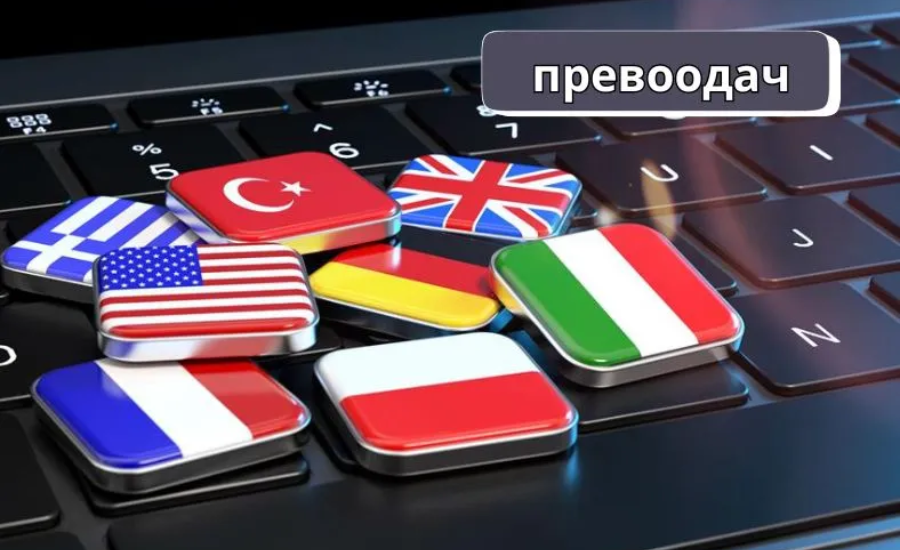The Role Of A Translator (Превоодач): Bridging Language Barriers
In today’s increasingly interconnected world, translators, or “превоодачи,” serve as essential bridges between diverse language communities. Their expertise enables seamless communication across linguistic and cultural barriers, fostering greater understanding and cooperation. Translators are not merely language experts; they are facilitators of global interaction, ensuring that ideas, information, and opportunities can be exchanged smoothly in an ever-expanding international marketplace.
This article delves into the multifaceted role of translators, highlighting their involvement in both spoken and written translation. Whether through interpreting live conversations or meticulously translating documents, their work requires a fine balance of precision and cultural sensitivity. One of the greatest challenges for translators is preserving the meaning, tone, and nuances of the original message while adapting it to another language. This delicate task is crucial for maintaining the integrity of the content, whether it’s a business negotiation, a legal document, or a literary work.
Translators operate in a wide range of environments, from global corporations and diplomatic settings to healthcare, education, and the entertainment industry. Their role is pivotal in ensuring that international relations, trade, and collaboration thrive. By bridging language gaps, translators make it possible for people, cultures, and ideas to connect and flourish on a global scale.
What Is A Translator (Превоодач)?

A translator, or “превоодач,” is a skilled professional dedicated to transforming ideas and messages from one language into another. Whether working with language pairs like English and Spanish, French and German, or any other combination, a translator’s primary goal is to ensure the accuracy and clarity of the original message in the target language. This process requires a deep understanding of both languages, as well as the ability to convey nuances, tone, and cultural context.
Translators can specialize in either spoken or written communication. Those who focus on spoken language are known as interpreters, facilitating real-time communication between individuals or groups who speak different languages. In contrast, written translators work on texts ranging from business documents and legal contracts to literature and technical manuals. In both cases, translators serve as vital connectors, breaking down language barriers and enabling clear, effective communication across cultures and communities.
The Art Of Translating Spoken Words
Consider a scenario where an English speaker needs to understand a Spanish speaker’s words. In such a situation, a translator steps in to bridge the gap, converting the Spanish dialogue into English so that both parties can engage in meaningful communication. This role is crucial in real-time interactions, such as business meetings, international conferences, or diplomatic negotiations.
The translator’s expertise is not limited to everyday conversations. They also tackle intricate discussions and specialized content, ensuring that both the message and its context are accurately conveyed. Their skill in interpreting spoken language is essential for overcoming language barriers in a wide range of settings—whether in professional environments like global business negotiations or in personal contexts where clear communication is necessary. Translators play a pivotal role in facilitating understanding and collaboration across diverse linguistic and cultural backgrounds.
Translating Written Texts
Beyond facilitating spoken communication, translators also play a crucial role in working with written texts. They are responsible for translating a wide array of materials, including books, articles, legal documents, and technical manuals, making these resources accessible to a broader audience. For example, a book originally penned in French can be translated into English, allowing readers who do not speak French to engage with its content, whether for enjoyment or educational purposes.
This aspect of translation is vital for the dissemination of knowledge, culture, and ideas across global boundaries. By translating literary works, scientific research, and legal documents, translators enable cross-cultural exchange and promote a deeper understanding of diverse perspectives. Their work not only facilitates access to information but also fosters international dialogue and collaboration, enriching the global community with varied insights and innovations.
Maintaining Meaning And Tone In Translation
Translation is far more complex than merely substituting words from one language for those in another. It requires a nuanced understanding of context, cultural subtleties, and the emotional undertones of the original message. A proficient translator ensures that both the meaning and the tone of the text or speech are preserved in the translation, maintaining the original intent and impact.
Consider, for instance, humor or idiomatic expressions. These often don’t have direct equivalents in other languages. A translator must be both creative and culturally savvy to convey the same humor or significance in the target language without compromising the original’s essence. This task involves not only a deep knowledge of the source and target languages but also an appreciation for the cultural contexts from which they originate. Translators navigate these complexities to ensure that the translation resonates with the same emotional and cultural depth as the original, facilitating genuine cross-cultural communication and understanding.
Where Do Translators Work?
Translators play a crucial role across a variety of fields and industries, making significant contributions to effective communication and understanding. Here are some key areas where their expertise is particularly valuable:
Education: Translators are instrumental in academic settings, helping students who speak different languages access educational materials and participate fully in classroom activities. By translating textbooks, lecture notes, and other educational resources, they ensure that students can learn and engage in their studies regardless of language barriers. Additionally, they facilitate communication between students and educators, supporting a more inclusive and effective learning environment.
Healthcare: In medical settings, translators are vital for bridging communication gaps between patients and healthcare providers. They translate medical information, such as symptoms, diagnoses, and treatment plans, ensuring that patients understand their health conditions and care instructions. This role is essential for providing accurate and compassionate healthcare, improving patient outcomes, and minimizing misunderstandings that could affect treatment.
Business: Translators support global business operations by translating a wide range of materials, including contracts, negotiations, and marketing content. Their work enables companies to communicate effectively with international clients and partners, navigate cross-border transactions, and expand their market reach. By ensuring that business communications are clear and culturally appropriate, translators help businesses build strong global relationships and succeed in diverse markets.
Legal: In the legal field, translators handle complex documents such as contracts, court orders, and international agreements. Their expertise ensures that legal texts are accurately translated and legally sound across different languages, facilitating fair and transparent legal processes. This is crucial for resolving legal matters involving parties from different linguistic backgrounds and upholding the integrity of legal proceedings.
The Importance Of Translators In A Globalized World
In today’s interconnected world, where cross-border communication and cultural exchange are increasingly crucial, translators play an indispensable role. They serve as the linchpins in bridging linguistic divides, enabling people from different countries and cultures to understand one another. This vital function extends beyond mere comprehension, as translators facilitate the global exchange of knowledge, culture, and business ideas.
Their expertise supports the seamless flow of information across languages, making it possible for individuals to engage in meaningful dialogue, businesses to forge international partnerships, and organizations to collaborate effectively on a global scale. By ensuring that communication remains clear and accurate despite language differences, translators help unlock opportunities for collaboration, innovation, and mutual understanding. Their work not only connects diverse communities but also enriches the global exchange of ideas and fosters a more integrated and cooperative world.
FAQs About Translators (Превоодачи)
1. What distinguishes a translator from an interpreter?
A translator specializes in converting written texts from one language to another. In contrast, an interpreter focuses on translating spoken language in real-time, facilitating communication during conversations, meetings, or conferences.
2. How do translators ensure their translations are accurate?
Translators strive to preserve the meaning, tone, and context of the original text. They leverage their in-depth knowledge of both the source and target languages, along with cultural insights, to produce translations that are both precise and effective.
3. Can translators work with any language pair?
Translators generally focus on specific language pairs, such as English to Spanish or French to German. Their proficiency in these languages and their cultural nuances enhances the quality of their translations.
4. Why is it crucial to maintain tone and context in translation?
Language encompasses more than just words; it includes cultural implications, emotional tone, and sometimes humor. Effective translation captures not only the literal meaning but also the intended tone and context, preserving the essence of the original message.
5. In which sectors are translators commonly employed?
Translators are frequently employed in fields such as education, healthcare, legal services, and international business. Their role is vital in facilitating clear communication across language barriers in these and various other sectors.
6. What steps are involved in becoming a professional translator?
To become a professional translator, one typically needs fluency in at least two languages and may benefit from formal education in translation studies. Many translators also pursue certifications or specialized training in areas like legal or medical translation.
Conclusion
In today’s interconnected world, translators (превоодачи) are indispensable for bridging communication gaps between speakers of different languages. Their role extends far beyond mere word-for-word translation; they are tasked with conveying the full meaning, tone, and cultural context of messages, whether they are spoken or written. This nuanced approach ensures that the essence of the original message is preserved and accurately communicated in the target language.
Translators facilitate deeper understanding and foster cultural exchange by enabling effective communication across diverse linguistic backgrounds. Their expertise is crucial in a wide array of settings—from hospitals, where they help ensure clear communication between patients and healthcare providers, to classrooms, where they support multilingual education and learning.
In the business realm, translators enable global operations and partnerships by translating contracts, marketing materials, and other essential documents. Additionally, in the realm of international diplomacy, they play a key role in negotiations and official communications, ensuring that all parties understand each other clearly. Through their work, translators make it possible for people, organizations, and nations to connect and collaborate more effectively. They contribute to a more inclusive and connected world by breaking down language barriers and enabling cross-cultural dialogue.
Subscribe for the latest news and alerts: Hip Hop Hip Hop!






